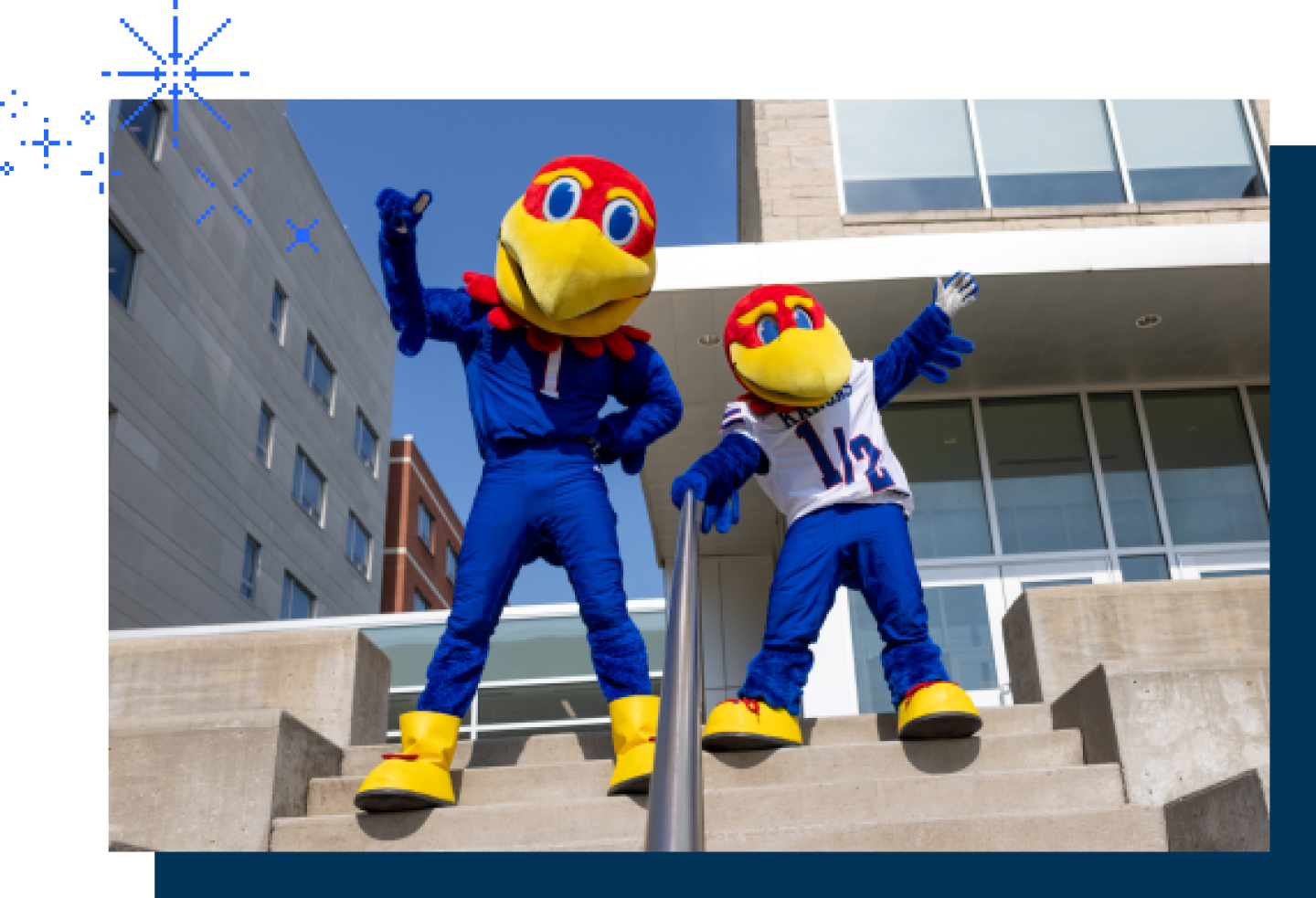Jobs in education
The United States is in dire need of well-trained teachers and education professionals. In 2024, there were more than 400,000 teacher positions either unfilled or filled by teachers not fully certified for their assignments, equivalent to roughly 1 in 8 of all teaching positions nationally.1
When you choose a career in education, you’re choosing to make a difference in the lives of the next generation. And when you choose the University of Kansas School of Education, you’re choosing to build on your career with a community recognized for excellence and a supportive learning environment.
81% of alumni across all online graduate education programs report a salary increase upon graduating.2

The value of KU’s graduate programs in education
Consider your career goals

What do you want to accomplish in your education career?
The University of Kansas School of Education and Human Sciences offers multiple pathways designed to meet your specific career aspirations and needs.
For classroom educators seeking to enhance their effectiveness with specific student populations, KU’s graduate certificates provide focused expertise in areas like special education, leadership, and TESOL in as little as one year. Many educators find these specialized credentials invaluable for addressing diverse learning needs while maintaining their current roles.
If you're looking to add a specific endorsement to your teaching license, the endorsement-only tracks offer the credentials required by state licensing boards to formally recognize your specialized training in high-demand areas like special education or English language instruction*.
For those with broader professional ambitions, KU’s master's degrees not only deepen your pedagogical knowledge but also can open doors to leadership positions, curriculum development roles, and potential salary increases.
Whether you're looking to excel in your current classroom, specialize in working with specific student populations, or advance to administrative roles, KU's nationally ranked online programs provide the credentials, community, and expertise to help you succeed.
Make sure the program you choose meets your needs. Talk to an admissions outreach advisor to get guidance and more information about the features of each option to help you determine what path is right for you.*
Advance your skills, expand your impact
The University of Kansas online education programs are built for people who want to make a difference—in classrooms, schools, and communities. Whether you’re a teacher, administrator, parent, nonprofit professional, you’ll find programs that connect research to practice and provide tools you can put to use right away. With flexible online courses and dedicated faculty support, KU helps you grow your expertise while continuing the important work you’re already doing.
- ✓ 8-week focused courses
- ✓ Evidence-based, research-driven curriculum
- ✓ Practical skills you can apply immediately
- ✓ Top-ranked by the U.S. News & World Report*
*Retrieved on February 17, 2026, from usnews.com/education/online-education/university-of-kansas-155317
Complete the form below to receive more information about your selected program, straight to your inbox.

Benefits of Joining the Jayhawk Family
When you enroll in an online graduate program in education at the KU School of Education, ranked the #2 Best Online Education Programs3 and #1 Best Online Masters in Education Programs for Veterans,4 you become an integral part of a forward-thinking community of educators—and a Jayhawk for life.
KU supports you both during your time in the program, through your assigned student success coordinator, and after graduation, at which point you can continue to tap into the Jayhawk network and various career resources.
Make a lasting impact in education
Ready to join the next generation of educational leaders? KU's online education programs offer three starts per year, making it easier to begin your journey when the time is right for you.
- Retrieved on August 15, 2025, from learningpolicyinstitute.org/blog/addressing-teacher-shortages-insights-four-states
- Based on a limited sample of self-reported data from alumni of the University of Kansas School of Education and Human Services online programs in education from graduating cohorts between 2021 and 2025.
- Retrieved on February 17, 2026, from usnews.com/education/online-education/education
- Retrieved on February 17, 2026, from usnews.com/education/online-education/university-of-kansas-155317
*KU’s licensure programs strive to maintain accurate and up-to-date information about the educational requirements for licensure in U.S. states and territories. However, regulations are subject to change and varying interpretations. In addition to possible changes in educational requirements, licensure often includes additional requirements, such as specific examinations and additional training or practicum hours. It is highly recommended that students seek guidance from the appropriate licensing agency before beginning an academic program to ensure they know what is needed to obtain the license/certification/registration in the state in which they intend to practice and/or seek licensure. For more information, visit our licensure disclosures page at https://soehs.ku.edu/current-students/licensure/disclosures

